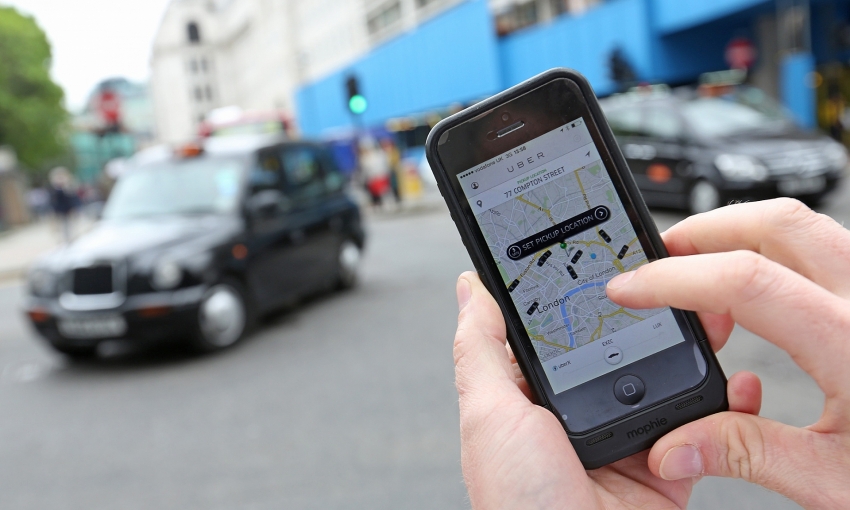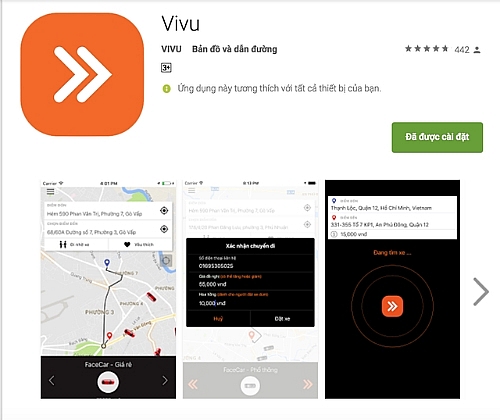|
Controversial
moves on ride-hailing market
After Uber sold its Southeast Asian operations to Grab, the
ride-hailing market is seeing an interesting phenomenon: insiders want out,
while outsiders want in.

On
March 26, all Uber drivers received a notification that after Uber officially
stops its operations in
The
change will take place on April 8.
However,
Uber drivers are not exactly excited about joining Grab because the firm's
commissions are far higher than Uber’s.
Notably,
Uber drivers would need to pay 28.6 per cent of their revenue cent to Grab,
including 25 per cent commission and 3.6 per cent personal income tax. The
ratio is much higher than the 20-25 per cent Uber charged.
Manh,
an Uber taxi driver from
Meanwhile,
Minh, another Uber driver from
“I
took up a loan to buy the car, however, after five years of working as a taxi
driver for a traditional taxi firm and then for Uber, I saw that the volume
of route the number of rides have been continuously decreasing and commission
increasing, along with the interest of the loan. These factors make drivers’
income unstable. Thus, when Uber sold its Southeast Asian operations to Grab,
I decided to sell my car because I do not want to risk working for Grab,”
Minh added.
Outsiders rush to join

According
to the latest movements, Phuong Trang Futa Group, a leading passenger
transportation and parcel delivery company in Vietnam, invested VND2.2
trillion ($96.53 million) into developing the ride-hailing application Vivu
and changed Vivu's name into Vato.
Tranh
Thanh Nam, the founder of Vivu (now Vato), told Vnexpress that according to
the initial plan, Vato would have been launched in May this year, however,
after Uber announced that it will withdraw from Southeast Asia, Phuong Trang
Group decided to launch the app in Hanoi and Ho Chi Minh City this month.
In
reality, Vivu stared operations in March 2016 under the name FaceCar. It
became famous for successfully mobilising $1 billion from Vietnamese overseas
investors in
According
to
Furthermore,
once customers download the Vato app, they will be able to order vehicles
from other taxi firms, including Mai Linh and Vinasun.
Vato
has numerous advantages compared to its competitors. Notably, drivers and
customers can discuss the fare based on an initial fare issued by Vato.
Vato’s
joining will make the ride-hailing market more diverse, highlighting the
appearance of Vietnamese players. Notably, Viettel Telecom recently signed a
comprehensive strategic cooperation agreement to purchase 30 per cent of
Vietnamese transportation startup Gonow, officially joining the online ride
hailing market.
Accordingly,
Viettel will provide Gonow with support in developing its website, sales
network, customer care system, and payment services. Founded one year ago,
Gonow is a platform that connects drivers and car owners with customers to
provide passenger and goods transport services, as well as car leasing.
Besides,
Mai Linh Mien Bac, Thanh Cong Taxi Group, Taxi Group, The Ky Moi, Sao Thu Do,
and Vinasun have also implemented their own ride hailing applications with
interfaces similar to those of Uber and Grab.
Previously,
in late 2016, 123Xe, another Vietnamese ride-hailing app developed by VNG,
was officially launched, marking VNG’s endeavour into the ride-hailing
market.
VIR
|
Thứ Tư, 4 tháng 4, 2018
Đăng ký:
Đăng Nhận xét (Atom)
Không có nhận xét nào:
Đăng nhận xét